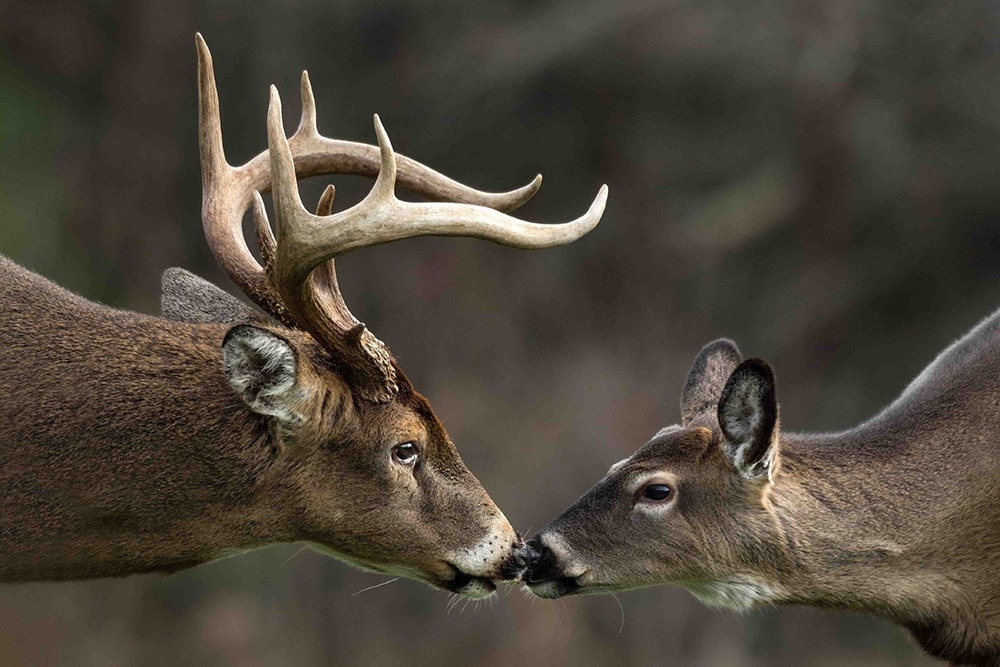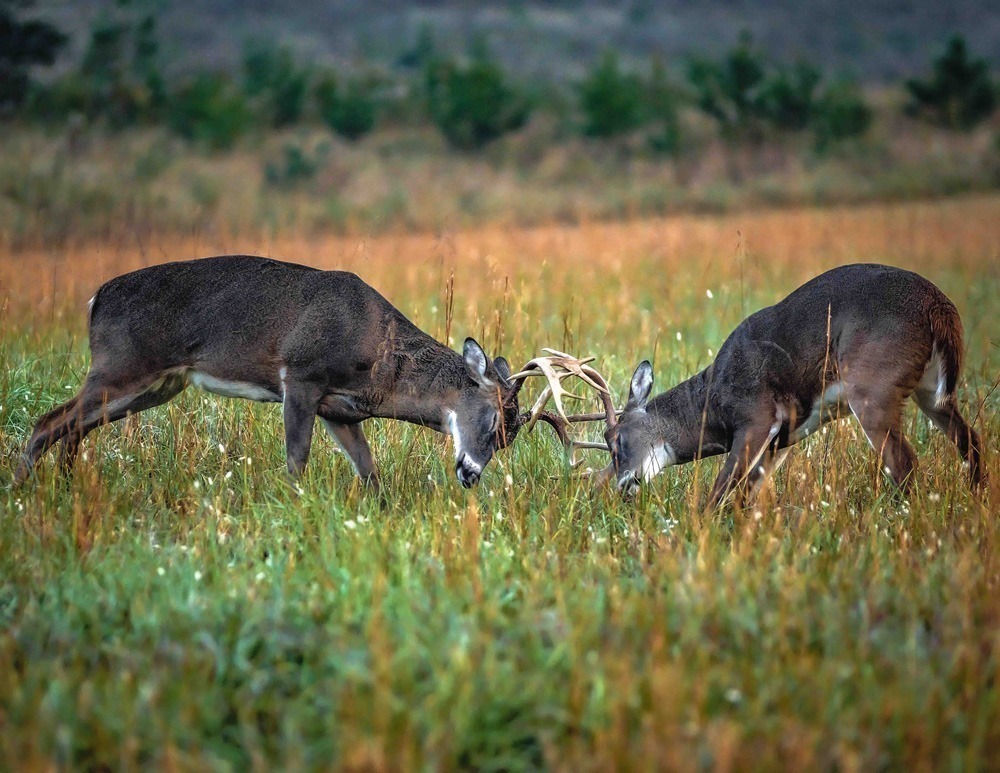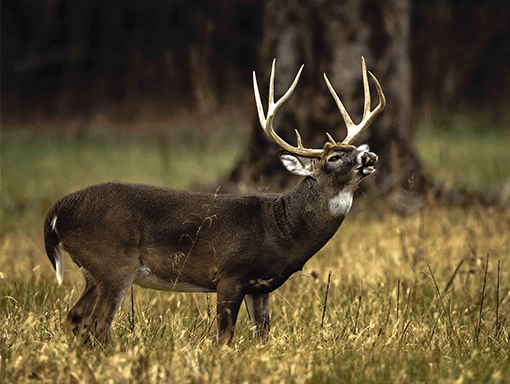Chronic Wasting Disease in Tennessee
Chronic Wasting Disease (CWD) is a major threat to deer and elk populations in Tennessee, as well as the conservation funding they generate. Tennessee hunters are at the forefront of managing the spread of CWD and protecting these important wildlife resources.
Did you Know?
counties in Tennessee with known Chronic Wasting Disease
100%
There is currently no known cure for CWD in deer
15
The prion causing CWD can remain infectious in the environment for over 15 years.
What is Chronic Wasting Disease?
Chronic Wasting Disease (CWD) is a highly-contagious neurological disease that infects deer, elk, and other members of the deer family known as Cervidae. It is from the same family of diseases as scrapie in sheep and mad cow disease in cattle. CWD affects a deer’s nervous system, causing brain degeneration, extreme weight loss, abnormal behavior, and ultimately death. There is no known cure—it is 100% fatal.
Infected animals may appear to have no symptoms for years while still spreading the disease through saliva, urine, and feces. Infected animals are also more susceptible to predation, being hit by vehicles, hunting mortality, and other causes of death. There is no evidence CWD can be transmitted to humans. However, the CDC advises that meat from a CWD-positive animal not be consumed.
The disease is caused by a misfolded protein called a prion, which is nearly impossible to destroy and remains in the environment for many years. The abnormal prion is transmitted to new animals through direct animal-to-animal contact, as well as contact with feces, saliva, carcass parts, and contaminated components of the environment, such as soil and plants. Transmission spreads faster in dense deer herds and with practices such as supplemental feeding, baiting, or mineral licks, which concentrate deer unnaturally into a small area.


Management and Containment Must Be Our Focus
With Tennessee the 26th CWD-positive state—along with our neighbors Alabama, Arkansas, Mississippi, Missouri, North Carolina, and Virginia (Source: CWD Alliance)—it is more important than ever for Tennessee hunters to be vigilant. Research shows that focused management and containment are the two most important steps to take.
States that have lived with CWD for decades have learned that without a strong and firm effort to manage and contain CWD, the disease will become more common and spread into new areas, negatively affecting deer populations significantly. This has the potential to significantly change conservation in Tennessee.
Currently, hunters and anglers are the single largest source of funds for wildlife management in the state. If CWD goes unchecked and is allowed to reduce our deer herd and deer hunting opportunities, fewer licenses and equipment will be sold. In turn, this will greatly decrease conservation funds generated from those purchases, which benefit all wildlife. As hunter numbers decline, time-honored traditions will disappear from Tennessee’s landscapes and we’ll lose the original advocates for sound conservation policy in the state.
How You Can Help
Tennessee Wildlife Federation will continue to be the voice for hunters and everyone concerned with wildlife conservation in Tennessee—from fighting to uphold bans on baiting to always advocating for hunters to be at the center of efforts to combat CWD.
Right now, the most important step you can take is to learn about current regulations set by the Tennessee Wildlife Resources Agency and how you can make sure you don’t accidentally spread the disease to healthy populations.
Tennessee hunters and wildlife enthusiasts are on the front lines to keep CWD from spreading. Sign the pledge below to take simple actions to reduce opportunities for the disease to spread.
I pledge to:
- Always follow recommendations for disposal of the carcass and tissues of infected animals.
- Not transport animals or carcasses.
Before bringing an animal product into Tennessee, I will make sure it meets minimum processing standards set by the Tennessee Wildlife Resources Agency. - Field dress and bury the offal and tissues of harvested animals.
Or, field dress and double bag the offal and tissues for disposal in a landfill. I will always use rubber or latex gloves. - Never bait or feed game.
I know baiting game is illegal in Tennessee. But the risk of CWD makes it even more important to avoid this practice. Baiting game increases the deer population in a small area, increasing opportunities for CWD to be transmitted. - Avoid use of urine products.
While it is not a known pathway for infection, urine has been shown to contain the prion that causes CWD. Additionally, it can also attract more animals to a smaller space, increasing opportunities for infection.> - Report to TWRA any animal that appears to be acting abnormally or appears to be sick.
And if I harvest an animal that I suspect may be ill, I will request testing and share results with TWRA.
Speak out
Help lead Tennessee's wildlife and habitat conservation movement by making your voice heard.
Give
Your generosity helps manage wildlife populations and restore habitats for a more vibrant Tennessee.
Sign up for action alerts
Learn More
How Your Donation Improves Conservation
When you donate to Tennessee Wildlife Federation, you become a catalyst for change through our programs that focus on the perpetual improvement of conservation, wildlife habitat, recreation, and more all across our beautiful state.
Corporate Partners Support Conservation Progress
By joining the Federation’s Corporate Council, companies link arms with a recognized leader in conservation and the millions of hunters, birders, anglers, and outdoor enthusiasts we represent.
In Memory of Anthony “Tony” Campbell
On July 27, Tennessee Wildlife Federation lost its first executive director and longtime friend, Anthony “Tony” Campbell.




